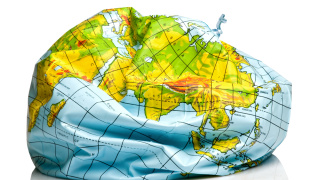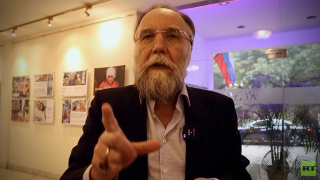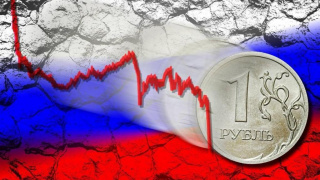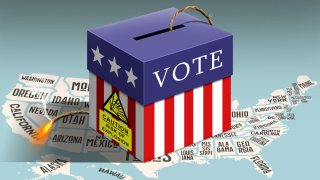A new war between the West and the East: BRICS will seek a replacement for the dollar
The leadership of the US dollar as a universal reserve currency is indisputable today. It is the "American" used by most countries of the world to trade with each other. This simple phrase means to the United States incredibly: world trade in dollars leads to an artificial overstatement of demand for the American currency, because of what it is estimated above its real value.
What is the benefit for the US? The ability to import goods at lower prices. This factor maintains a fairly high standard of living in the United States, which is higher than it really should be. The wide use of the dollar in international trade, its demand in the main exporting countries, is ultimately created by the giant dollar masses, through which US crediting at super-low rates takes place. This gives Washington the opportunity to support the American economy afloat, to finance the work of the federal government and to serve multi-trillion debt.
However, in recent years, there have been increasing calls for a rejection of the dollar as a world reserve currency. This has been repeatedly stated, for example, by the Chinese authorities. Earlier, the head of the Russian state said this, which at the recent BRICS summit again drew attention to this issue, but with a more rigid formulation about the "problem" of the existence of the dollar in this status.
The rejection of the dollar in world trade settlements is, as Western economists say, a real and very powerful blow to the American economy. But is it easy to do this?
A new war between the West and the East
In recent months, the phrase "global trade war" is increasingly found on newspaper pages, on television and radio broadcasts, and in the online media. This is about the confrontation between the US and China on the issue of bilateral trade, artificial and sometimes uncontrolled increase in duties. Economists note that such behavior can be "contagious," and collapse will occur when other countries in the world move to a policy of increasing trade tariffs.
At the same time, other opinions also sound: about the economic war between the West and the East. It can start, according to Western experts, with the global collapse of the dollar, and this process can be planned and implemented in the East.
Putin's Plan
Speaking at a press conference after the BRICS summit, Putin noted that the Kremlin has an understanding of the crucial role of the dollar. However, such a high status of the US currency, as well as its lack of alternative, in the opinion of the Russian head of state, "become a problem" for the world economy, which today more clearly reflects the values of a multipolar and not a unipolar world.
"This is a universal reserve currency. More or less this can be claimed by the euro, but even then not in full. About this problem, and this becomes a problem, we are not just talking about ourselves. If you think that this is an initiative of Russia, you are mistaken, " said Putin.
According to the president, Russia does not intend to abandon the dollar, but "it is necessary to expand the possibilities of world finance and create new reserve currencies".
In May, Vladimir Putin already drew attention to the attachment of the Russian economy to the dollar in conjunction with the issue of Russia's economic sovereignty. World-wide attachment to the American currency, in his opinion, allows the US to "parasitize" the world economy.
Western experts took this initiative as an economic war between the West and the East. Concerns of Western economists are also caused by the fact that the Chinese authorities in the summer of 2017 got rid of assets in dollars worth half a trillion. Western specialists already then called Beijing's actions the beginning of the end for the dollar, taking into account the strength of the Chinese economy.
They also noted that China and Russia will inevitably be followed by the BRICS countries and other associations, which can cause an avalanche of the dollar in the calculations, a decrease in the share of assets denominated in US currency, and total deprivation of Washington's strongest political leverage, including on the political processes in the world.











